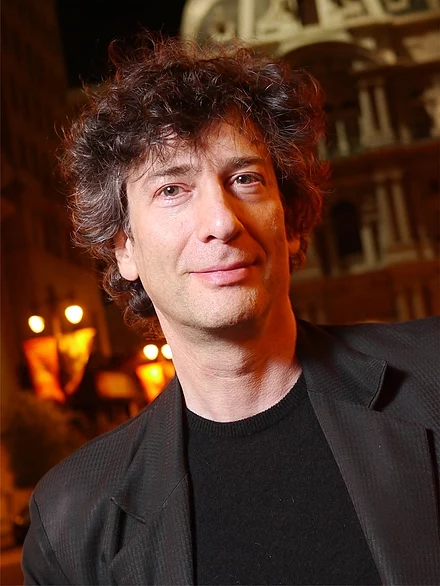I’m working on an essay about Alice Munro and her daughter Andrea Skinner. I’ve been researching it for a little while now—there are a lot of dense histories and many details to cover, spanning over fifty years, so it’s taking a bit longer than I anticipated. But that should be out this week.
As I was making my second set of notes, a New York magazine report on Neil Gaiman dropped, a detailed piece on the many allegations of sexual abuse brought forth by multiple women. It has gone viral, at least to the extent that a paywalled article can go viral, and is currently a hot topic of discussion, at least online. Gaiman has since released a statement.1Added January 15, 2025 So, yes, I’ll also have something on this story in a while, along with work on Brian Alvarez, also accused of sexual assault.
Gaiman, a massively popular, very successful and wealthy author who is also involved with several film and television projects, has had a powerful influence on many readers. He was, until recently, in what is now revealed to have been a tumultuous and strained marriage with Amanda Palmer, who is also very famous for various matters to do with art-making that I’m unclear about and have little interest in exploring. I’ve never read him (I tend to avoid what I think of as men-people fantasy, unless they’re written by very dead men-people), and the one time I was kindly invited to an Amanda Palmer “concert” by a friend, I had to leave because I got tired of her constant chitter-chatter at the piano, and life felt too short. I like my artists to remain aloof, and this was like a campfire gathering, without the marshmallows or the fun.
Responses to the report on Gaiman (which only exists because of a podcast that went viral in 2024) range from anger to shock and betrayal. It seems that part of what’s happening is that Gaiman and his work exerted a powerful influence on many readers, and understanding the recent revelations is also about understanding parts of past selves. And for many, that understanding is fraught and painful: “Who am I that I liked this writer, once upon a time?” (They should not, really, feel that way, but their responses are understandable, given how we are all caught up in the art we consume.) The same seems true of Amanda Palmer, who occupied a very particular place in culture at one point, and she—in her supposedly off-beat and bohemian relationship with Gaiman—once offered the possibility of a broken, disjunctive, way to be in the world, a weirdness, as my friend L. put it.
This sense of betrayal by a once revered creative force is not uncommon, because all creative people are also just that, people. Betrayals and disappointments will continue to come about, and we’ll just have to work through them as best we can. I still can’t read a Pablo Neruda poem, but that doesn’t mean no one should, and it was years, years before I could listen again to “California Dreaming,” a song I first heard as a wee child and one that I have always loved.
I hope someone’s writing about this part of it. I doubt the charges against Gaiman will stick because so much of it is just very murky, for reasons I’ll expand on, but it is clear that the man—along with Palmer—had established a pattern of looking for and exploiting vulnerable and sometimes very lost souls. As I continue on this essay on Alice Munro, who denied that her daughter had been abused by her partner, I’m struck by the similarities between the kinds of predatory behaviour evident in both cases. Gaiman seems to have exclusively targeted the most deeply isolated and vulnerable women to abuse, but was apparently respectful towards others—the successful women in his professional orbit—and spoke frequently of women’s rights, thus marking himself as a public feminist. This is also how child sexual abuse works: abusive adults will look for the children least likely to tell, or least likely to be believed, or the ones for whom any attention will seem like a lifeboat in rough seas, priming them for years of behaviour that they struggle to explain even to themselves.
There are no classes for this kind of slow, ceaseless, predatory way of being in the world: people just are that way, and it’s the vulnerable who pay the price.
Image: Wikipedia

Don’t plagiarise any of this, in any way. I have used legal resources to punish and prevent plagiarism, and I am ruthless and persistent. I make a point of citing people and publications all the time: it’s not that hard to mention me in your work, and to refuse to do so and simply assimilate my work is plagiarism. You don’t have to agree with me to cite me properly; be an ethical grownup, and don’t make excuses for your plagiarism. Read and memorise “On Plagiarism.” There’s more forthcoming, as I point out in “The Plagiarism Papers.” If you’d like to support me, please donate and/or subscribe, or get me something from my wish list. Thank you.

